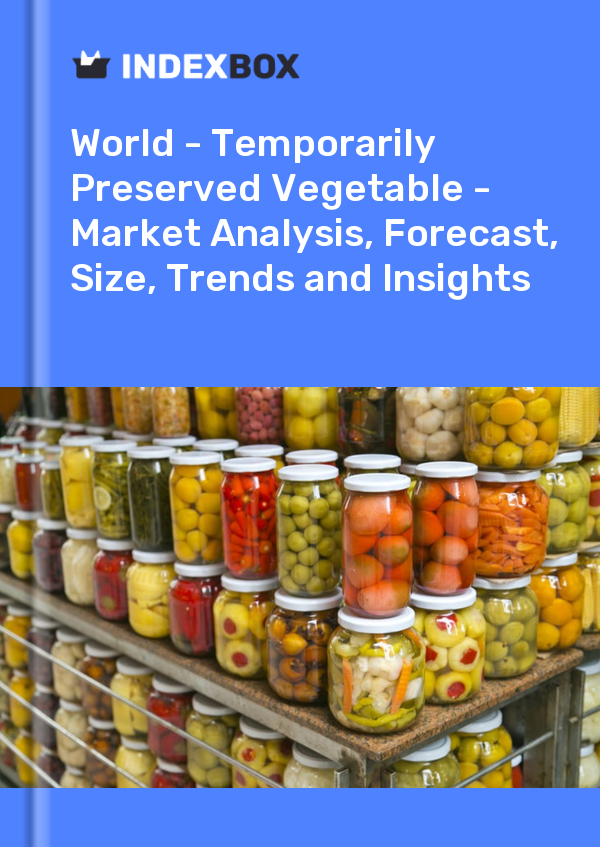
IndexBox has just published a new report: 'World - Temporarily Preserved Vegetable - Market Analysis, Forecast, Size, Trends and Insights'. Here is a summary of the report's key findings.
Imports 2007-2018
In 2018, the amount of canned vegetables imported worldwide totaled 593K tonnes, standing approx. at the previous year. Overall, temporarily preserved vegetable imports, however, continue to indicate a relatively flat trend pattern. The pace of growth appeared the most rapid in 2017 when imports increased by 13% against the previous year. In that year, global temporarily preserved vegetable imports attained their peak of 595K tonnes, leveling off in the following year.
In value terms, temporarily preserved vegetable imports stood at $649M (IndexBox estimates) in 2018.
Imports by Country
The countries with the highest levels of temporarily preserved vegetable imports in 2018 were Japan (71K tonnes), South Korea (66K tonnes), Italy (55K tonnes), Spain (44K tonnes), France (41K tonnes), Brazil (31K tonnes), Russia (31K tonnes), the U.S. (26K tonnes), Belgium (21K tonnes), Germany (20K tonnes), the UK (19K tonnes) and Chile (15K tonnes), together reaching 74% of total import.
From 2007 to 2018, the most notable rate of growth in terms of imports, amongst the main importing countries, was attained by Brazil, while imports for the other global leaders experienced more modest paces of growth.
In value terms, the largest temporarily preserved vegetable importing markets worldwide were Italy ($98M), Japan ($77M) and France ($50M), together accounting for 35% of global imports. Spain, Germany, Brazil, Belgium, South Korea, the U.S., the UK, Russia and Chile lagged somewhat behind, together comprising a further 39%.
Among the main importing countries, Brazil experienced the highest growth rate of the value of imports, over the period under review, while imports for the other global leaders experienced more modest paces of growth.
Import Prices by Country
In 2018, the average temporarily preserved vegetable import price amounted to $1,094 per tonne, jumping by 3.6% against the previous year. Over the period under review, the temporarily preserved vegetable import price, however, continues to indicate a relatively flat trend pattern. The growth pace was the most rapid in 2008 when the average import price increased by 6.5% y-o-y. The global import price peaked at $1,303 per tonne in 2013; however, from 2014 to 2018, import prices failed to regain their momentum.
Prices varied noticeably by the country of destination; the country with the highest price was Italy ($1,769 per tonne), while South Korea ($427 per tonne) was amongst the lowest.
From 2007 to 2018, the most notable rate of growth in terms of prices was attained by South Korea, while the other global leaders experienced more modest paces of growth.
Source: IndexBox AI Platform




